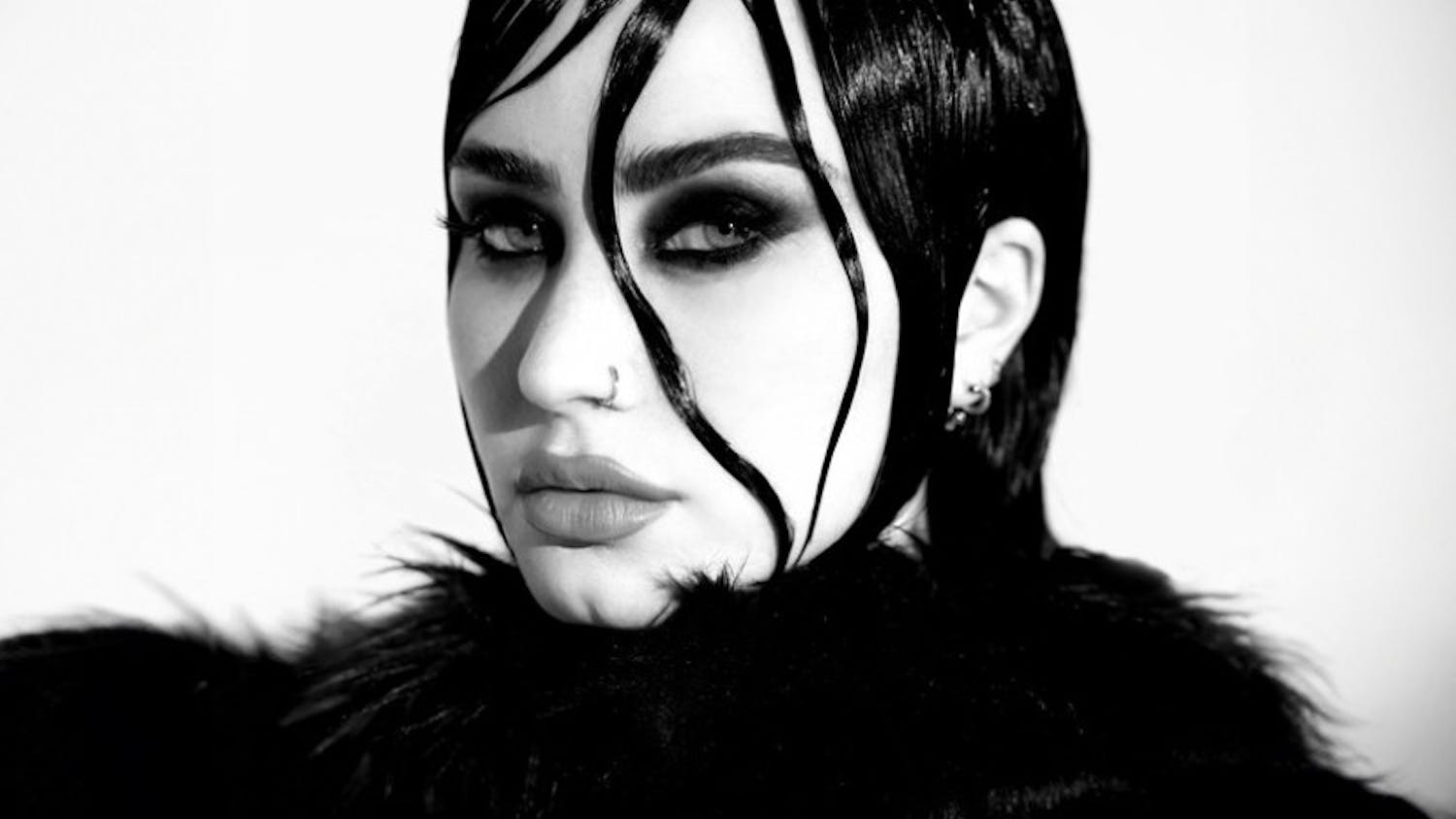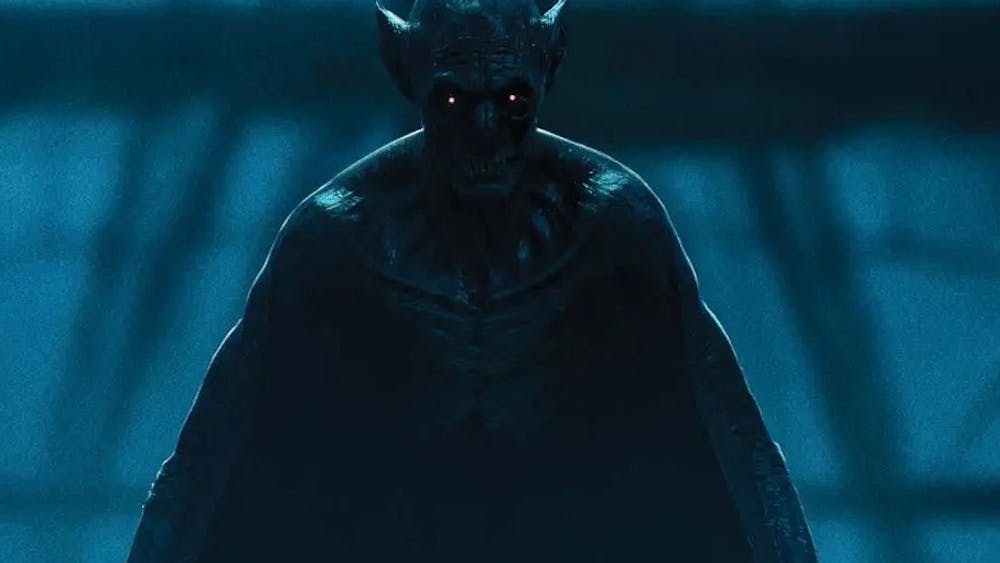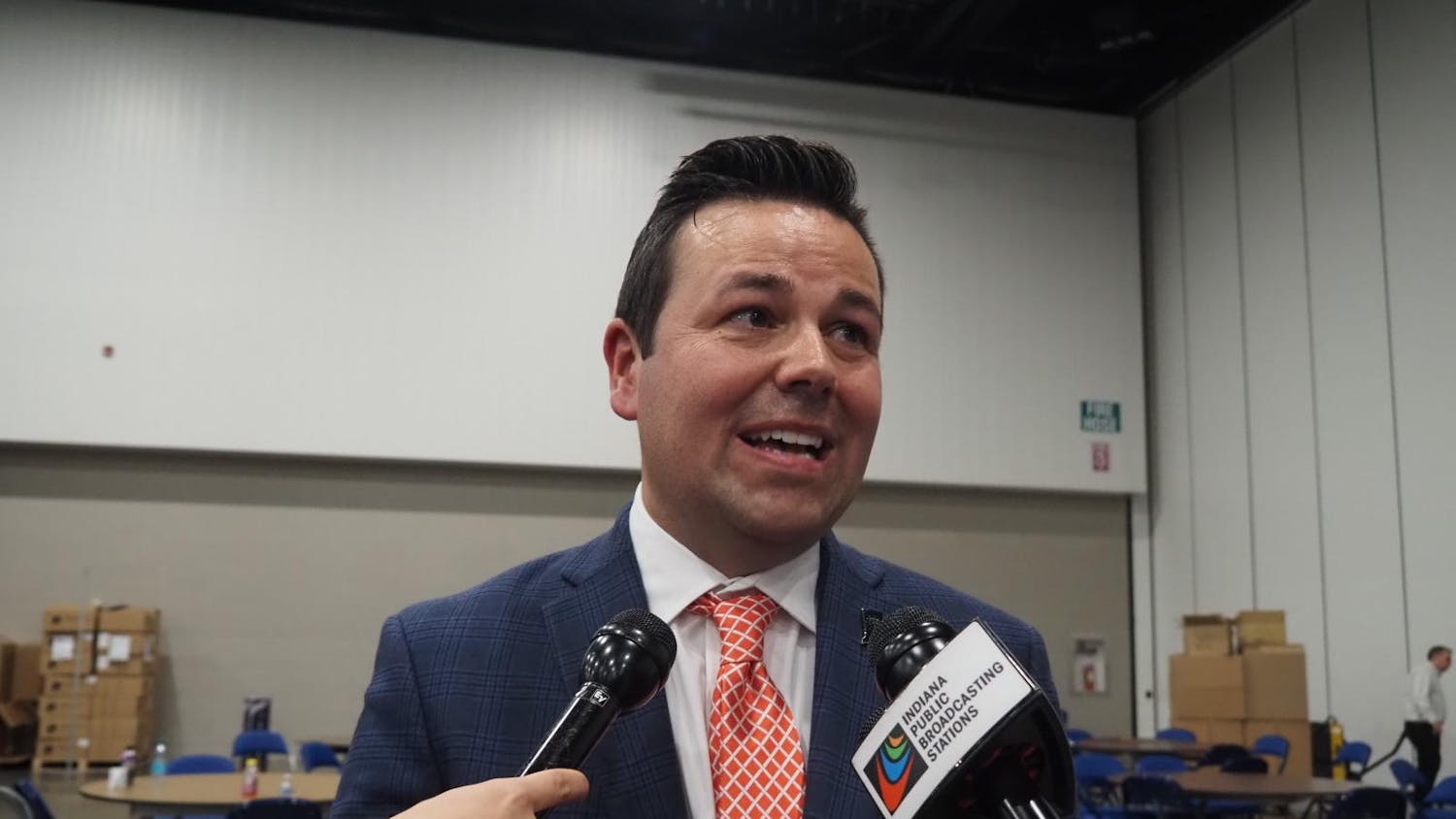Perhaps the reason it's called "Grand Opera" is because the sensation one feels when watching a Verdi opera is so aesthetically powerful, it can only be described as grand. At 8 p.m. Friday at the Musical Arts Center, the first and only Verdi opera to be played at IU within the last three years opened -- the tragic "Rigoletto."\nComing into the MAC, the buzz from the crowd gathering in the lobby and coat check indicated something special was about to occur. For this reviewer, who's seen almost every opera at IU in the last three years, this was a new experience.\nVerdi operas are the cornerstone of the operatic cannon. His music is well known, loved, respected and performed, which is why Verdi operas play almost constantly in New York.\nAs the lights dimmed, professor David Effron conducted the concert orchestra in the haunting prelude (reminiscent of the opening from "La Forza del Destino") with the brass pulsing the same notes of terror.\nThe curtain opened on a lavish palace set, where the duke was involved in what seemed to be an orgy, or at least a wild party. We meet the duke of Mantua, a brash, insensitive ladies' man, whose sole object is to seduce whomever he wants: his servants, wives of counts or sisters of murderers.\nGraduate student Yoonsoo Shin played the duke well, making him likable and fun. A performance like that made it difficult to hate the duke, although he is a horrid character.\nThe scene continues and introduces the court jester, Rigoletto -- an old, bitter man who often crosses the line between joke and insult. Rigoletto, played by graduate student Ray Fellman, is chastised by court members for being a buffoon and being deformed (he has a hump). He responds with cruder and nastier jokes.\nFinally, Count Monterone, played by doctoral student Allen Saunders, takes the stage like the commendatore from "Don Giovanni" and curses Rigoletto, then vanishes. Saunders was brutally magnificent in his delivery, tone and eerie energy.\nRigoletto goes home lamenting his curse. He finds his daughter, Gilda, played by graduate student Kerrin Dunbar -- whom the men at court think is Rigoletto's lover -- wanting to go out in the world. Rigoletto, afraid she will leave him, does not let her go. \nWe learn Gilda has found a lover who follows her after church -- the duke in disguise as a student.\nTwo incredible duets between Rigoletto and Gilda silenced the audience until the uproarious applause was followed by bravos. They are unmatched at the MAC in any production during the last two years.\nThe first act ends with court members tricking Rigoletto into thinking they are going to kidnap Count Ceprano's wife, but instead they kidnap Gilda and bring her to the court. Rigoletto is devastated, but seeks revenge.\nAct two finds Rigoletto ready to work at the home of the duke, to find Gilda at the mercy of the duke and his court. Rigoletto vows revenge on the duke, while Gilda, still in love with him, prays for his safety.\nThe final act takes place in and around the home of Sparafucile, an assassin with a beautiful sister. The duke buys Sparafucile's sister for 20 scudi without her knowledge.\nShin, as the duke, then sings the most popular song, "La donna mobile," which is often heard on commercials and is a favorite of the Three Tenors. But hearing the song in context creates a new vision about how fickle women are and how their tendency to love is stupid. While Shin sang the song with arrogance, a filthy grin and stunning mastery, it was difficult to like a song with such horrible content.\nFinally, Rigoletto and Gilda enter and Rigoletto pays Sparafucile to murder the duke. Sparafucile's sister, charmed by the duke, begs her brother not to kill him. Sparafucile decides to kill the next person who comes through the door. Gilda, having returned to the house to find the duke, hears the plan and knocks on the door.\nThe opera ends with Rigoletto condemning himself and the curse that was laid upon him.\nDunbar and Fellman gave two of the best performances in IU opera in years. They were masterful in voice -- Dunbar incredible with the dramatic soprano -- and had true emotion, which made the ending much more powerful.\nGuest director Tito Capobianco and maestro Effron created a haunting and brilliant presentation that should not be missed. If Verdi is performed this well at IU, perhaps the Opera Theater should consider doing a few more.\n"Rigoletto" will be performed again at 8 p.m. Friday and Saturday in the Musical Arts Center. Tickets are $16-28 for the public, $9-14 for students and can be purchased at the MAC Box Office or any Ticketmaster outlet.
'Rigoletto' features superb performances
Get stories like this in your inbox
Subscribe





